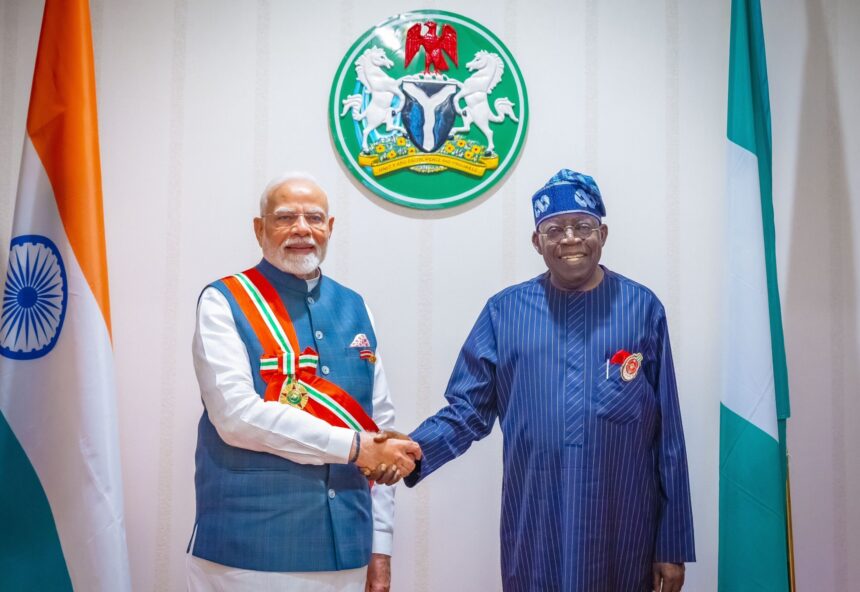Nigeria’s President Bola Tinubu and Indian Prime Minister, Narendra Modi, have instructed their respective authorities to complete all outstanding bilateral trade agreements between their two nations.
This was announced in a joint statement released in Abuja on Sunday, following the completion of the Indian Prime Minister’s state visit to Nigeria.
The visit, the first by an Indian Prime Minister in 17 years, marked a turning point in the relationship between the two countries, as they formalized agreements aimed at boosting trade, infrastructure, and industrial development.
A major highlight of the visit was the commitment to actualize over $14 billion in investments from Indian companies, pledged during the Nigeria-India Presidential Roundtable and Business Conference held in New Delhi in September 2023.
- Advertisement -
With Indian firms already contributing over $27 billion to Nigeria’s economy, these investments are set to target Nigeria’s critical sectors, including energy, telecommunications, industrialization, and defense.
Prime Minister Modi and President Tinubu directed officials to expedite the finalization of key agreements, including the Economic Cooperation Agreement (ECA), the Double Taxation Avoidance Agreement (DTAA), and the Bilateral Investment Treaty (BIT). These frameworks are designed to facilitate smoother business transactions and encourage greater investment flows between the two nations.
The discussions also centered on infrastructure development, with India reaffirming its commitment to support Nigeria’s priorities through concessional lines of credit and technical expertise. Indian companies are expected to play a key role in Nigeria’s infrastructure projects, including in the energy sector, where long-term contracts for crude oil and LNG supply were discussed.
In agriculture, Modi’s visit underscored India’s role in enhancing Nigeria’s food security. The two leaders discussed investments in agricultural machinery, seed supply, and research to increase crop yields. Indian expertise in irrigation, climate-resilient seeds, and food processing is expected to contribute significantly to Nigeria’s agricultural modernization.
Education and healthcare were also on the agenda, with India offering support in building hospitals, expanding digital health initiatives, and providing affordable pharmaceutical products.










